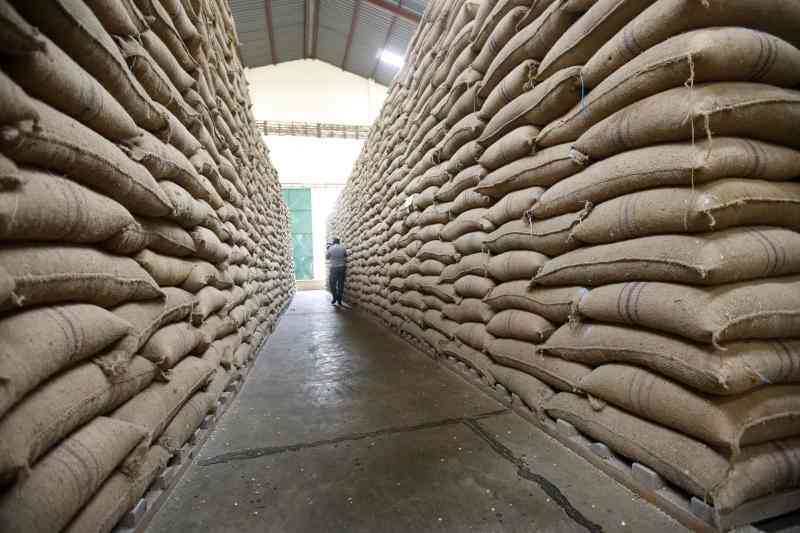After failing to sell all their maize to the government and with prices of the produce remaining low, Kenya's grain farmers now bank on the warehouse system.
The farmers have turned to the system in search of cash as the new planting season nears.
The warehouse receipting system (WRS) allows farmers to store their maize in a certified facility and use the receipt to get a loan from the bank.
The farmers would later sell the maize when prices rise, as they are wont to do, repay the loan, the warehouse charges and keep the rest of the profit.
At first, farmers were not keen on the system as they waited for the government-run National Cereals and Produce Board (NCPB) to purchase their produce at a good price.
NCPB did announce its purchasing price in December last year but it was a disappointment to farmers as a 90kg bag was being bought at 25 U.S. dollars instead of the anticipated 33 dollars.
And that was not the only setback for farmers, out of the 40 million 90kg bags of maize produced last season; NCPB said it would only buy 3 percent for its strategic grain reserves.
A lot of maize has, thus, been left in the hands of farmers who are now turning to the warehouse receipting system, which initially they were not keen on using. The farmers' plight has been worsened by the increased cheap imports from Uganda.
"The cost of maize now averages 17 dollars per bag, which is too low. I supplied to NCPB 100 bags two weeks ago and I am remaining with 300 bags, which I cannot sell to middlemen at a loss. The warehouse receipting system remains my only hope," Joy Kipsang, a farmer in Mois Bridge, said Monday on phone.
The farmer said she would store in a warehouse in the region 250 bags and remain with the rest for consumption.
"I have already contacted the warehouse owner and I am ferrying the produce there this Thursday. We agreed to store the maize at 30 dollars per bag. I know I would even sell at a higher cost."
After storing her produce, Kipsang said she will use the receipt to get a 2,198 dollars loan from a bank for the planting season.
"I have to plan otherwise I may not have money to till and plant my 25 acres. Again, I went for the warehouse system because NCPB takes time to pay farmers. We may even get the cash in April and by this time; the planting season would have passed."
At the warehouse, the farmers are charged 0.77 per bag for the first month of storage and in subsequent, 0.11 dollars per bag.
"These are charges that we would not have incurred if we had a good market. For now, we have to go that way to get profit and at least have money for planting in March," said Joseph Kipkoech, a farmer in Uasin Gishu who has stored 300 bags in a warehouse.
Stay informed. Subscribe to our newsletter
Davine Minayo, a market linkages officer at East African Grain Council, said recently that WRS enables farmers to escape the jaws of middlemen and have money to plant.
"It takes three to four months for maize prices to rise. Thus, storing maize in a warehouse is the best option for cash-strapped farmers as they prepare for planting season."
 The Standard Group Plc is a
multi-media organization with investments in media platforms spanning newspaper
print operations, television, radio broadcasting, digital and online services. The
Standard Group is recognized as a leading multi-media house in Kenya with a key
influence in matters of national and international interest.
The Standard Group Plc is a
multi-media organization with investments in media platforms spanning newspaper
print operations, television, radio broadcasting, digital and online services. The
Standard Group is recognized as a leading multi-media house in Kenya with a key
influence in matters of national and international interest.
 The Standard Group Plc is a
multi-media organization with investments in media platforms spanning newspaper
print operations, television, radio broadcasting, digital and online services. The
Standard Group is recognized as a leading multi-media house in Kenya with a key
influence in matters of national and international interest.
The Standard Group Plc is a
multi-media organization with investments in media platforms spanning newspaper
print operations, television, radio broadcasting, digital and online services. The
Standard Group is recognized as a leading multi-media house in Kenya with a key
influence in matters of national and international interest.



